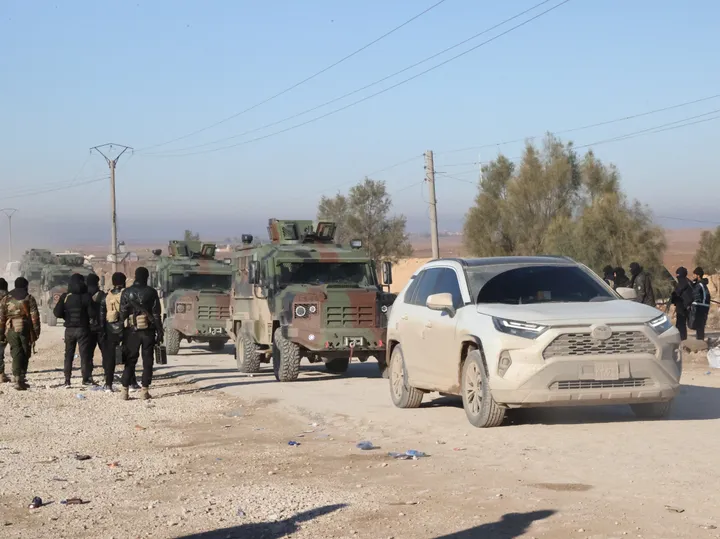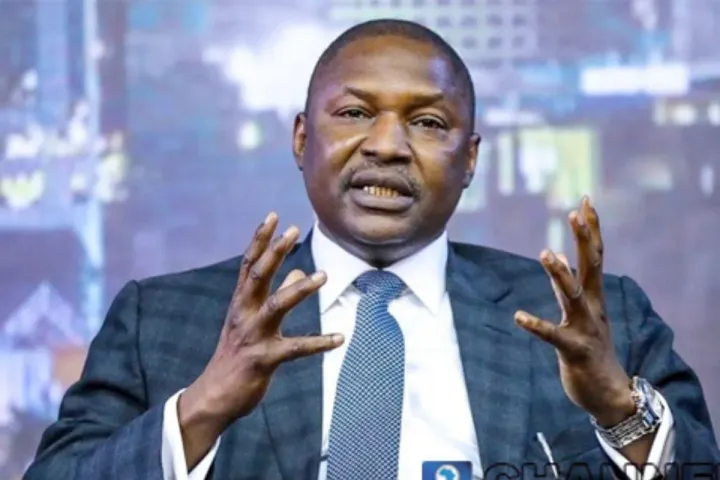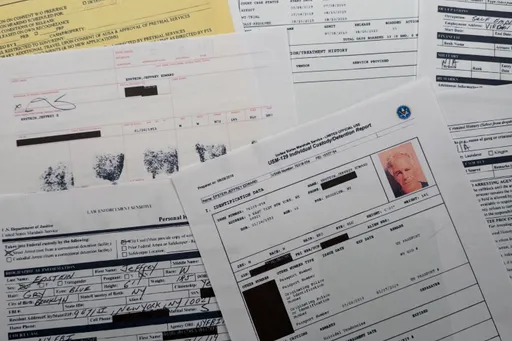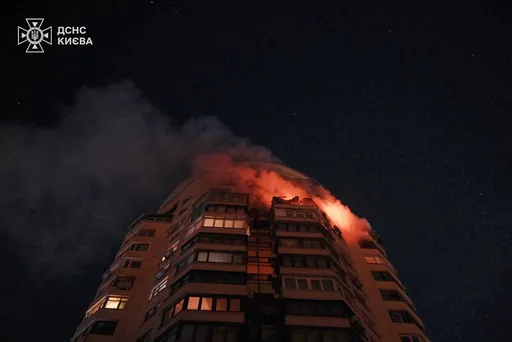Mohamed Abu Matar, 35, started Gaza’s first-ever 3D printing business called Tashkeel3D, in 2016. The company, known for using 3D printing technology to produce medical equipment, was destroyed by an Israeli airstrike on May 18.
“I went to my company site to see if I could salvage some material from the rubble, but everything is shattered into useless pieces now,” Matar said.
The company was an affiliate of the Canadian-based Glia Project, which worked with partners to develop low-cost, high-quality 3D-printed medical equipment. Tashkeel3D developed 3D-printed stethoscopes, tourniquets, compression devices used to limit bleeding for hospitals in Gaza.
“My losses are divided into two parts. The first one is the 3D machines and equipment. I have been collecting them piece by piece since 2006. It took me years of waiting to bring some equipment inside Gaza because of the siege,”
“The second part is the products that I made with the 3D printers. It cost me a lot of time and material. They were ready for delivery when the strikes flattened our offices,” he said, adding that the damages are estimated at about $190,000.
“It will take me years to rebuild his company,” he said.
Matar’s business is one of many destroyed by Israeli airstrikes in the past week. The conflict was triggered by an Israeli police crackdown on protesters at the Al-Aqsa mosque compound in occupied East Jerusalem on May 10, following the forced explusions of Palestinian families from their homes in the Sheikh Jarrah neighbourhood.
In the 11 days of Israeli bombardment on Gaza, many residential buildings, schools, media offices and clinics have been flattened.
The strip has plunged into darkness with limited access to food, water and electricity which limits crucial operations for hospitals, clinics and relief organisations.
The death toll is at 230 Palestinians, with one-third being women and children, and 12 Israelis, including two children.
More than 72,000 residents are seeking protection in 58 UN-run schools across Gaza and over 25,000 are staying with host families, according to the UN.
The Gaza’s Ministry of Public Works said more than 1,800 residential and commercial units have been damaged or destroyed.
All this in just 11 days.
Even as a ceasefire came into force in Gaza on Thursday, brokered by neighbouring Egypt, residents are still mourning the loss of loved ones and worried about rebuilding.
And the challenges are daunting.
The city was still in ruins after the devastating Israeli military assault in 2014. It already lacked basic infrastructure that disrupted the daily lives of its 2 million residents.
But the 14-year blockade on Gaza by Israel, as well as restrictions by Egypt, is a near insurmountable barrier.
The city has been under a complete land, sea and air closure and restrictions since 2007. The Israeli government says the Hamas group poses security threats and therefore the blockade is necessary.
“Since 2007, Gaza was under Israeli attacks four times in 2008, 2012, 2014 and now just recently in 2021. So we have to understand that all of these years of the difficulties Gaza has been facing have destroyed the whole economy and infrastructure,” Naser Abdel Karim, an economics and finance professor at Arab American University in Ramallah, told TRTWorld.
“The goods and all construction materials, they need to come through Israel and through border checkpoints crossings that are controlled by Israel, so unless there is an end of the siege of Gaza by Israeli control of borders, we cannot expect a reconstruction of the economy and infrastructure in Gaza,” he said
In order to import construction material into Gaza, a special permission is required from the Israeli military. The list includes goods that might have “dual-use”, which according to Israel can either be used for building a house or underground tunnels.
The list includes civilian machinery, spare parts, medical equipment, telecommunications equipment and milling machines, among others.
Despite several calls from the international community and rights organisations about lifting the illegal blockade, the nominal border crossings still prevent the entry of humanitarian goods and materials for reconstruction. Most commercial crossings are closed.
At the moment, only the Karem Abu Salem or Kerem Shalom crossing is open, bringing in humanitarian aid like medicine, food and basic necessities and the Erez crossing (Beit Hanoun) currently open for pedestrians.
Firas Masri, a political analyst and researcher, said that Israel will benefit financially from the reconstruction of the city “as most of the material used to rebuild Gaza will come from Israeli industries and they will be taxed by Israeli authorities as they enter Gaza”.
“The Israeli blockade of Gaza makes it difficult for reconstruction materials like cement, rebar, and other ‘dual-use’ materials from entering through the Kerem Abu Salem/Shalom or the Beit Hanoon/Erez crossings. So far, the Egyptians have kept the only other border crossing at Rafah open, but based on past history, that could change at a moment's notice.
“Rafah's continued opening will greatly benefit the reconstruction effort not only due to less scrutiny during the inspection of goods, but also because of the lower tax duty imposed on goods entering Gaza from Egypt versus the Israeli border.”
‘This is a cycle that needs to end’
Last week, an Israli airstrike flattened al-Jalaa tower, which had many residential apartments and offices, including bureaus of local and international media outlets, including Al Jazeera and The Associated Press. Israel justified the bombardment of the building saying the building contained “military assets belonging to the intelligence offices of the Hamas terror organisation”.
Six high-rise buildings have been completely destroyed, according to Gaza’s government information office.
Palestinian officials on Friday estimated that it would cost some $100 million to rebuild homes, power and agriculture.
“In order to help rebuild Gaza, we have to reunite Gaza with the West Bank and become one economy, one government and policy. We cannot expect the international community to be motivated to help Gaza. So what we need is simply one government, one unity government which supervises, implements, mobilises plans for reconstruction in Gaza,” Naser Abdel Karim, the professor, said.
“We cannot continue reconstructing the economy and infrastructure with our and international money. And then Israel comes and demolishes the infrastructure and the economy every couple of years. This is a cycle that needs to end.”
Momen Faiz, whose media production company was destroyed in the recent Israeli bombardment, agrees.
In 1987, the 33-year-old journalist saw his father getting killed and his house demolished by the Israeli army. In 2008, he lost his legs in an Israeli airstrike.
Then in 2014, his home was once again flattened, but in 2021, he said his dreams were shattered.
“I opened my company called ‘Idea Media’ 6 months ago. When I received the news of the company being bombed, I rushed to the place. It was totally destroyed,” he told TRTWorld.
“I always dreamed of building my own business. My company was new, I spent day and night working on different projects and was happy.
“But today I stand in front of my company in rubble, I see my dreams, the long days of working, in rubble. We spend our entire life building a house or a company and in just a blink of an eye, it is destroyed. This cycle of reconstruction and deconstruction needs to stop. This is not the way to live,” he said.
America’s President Biden said on Thursday that the United States will send humanitarian aid to Gaza but coordinated with the Palestinian Authority, Hamas’s rival that controls the occupied West Bank. Egypt also said it had devoted $500 million in reconstruction aid to Gaza.
The UN will likely facilitate rebuilding, but a reconstruction mechanism will greatly impede the delivery of materials, as it did in the post-2014 reconstruction effort, according to Masri, the political analyst.
He also pointed out that in 2014, billions were pledged to Gaza at a donor conference held in Cairo; however, most of that money was never delivered.
“Donor fatigue could set in again, and Gaza could see even fewer contributions this time around. The political component also needs to be considered as the US has already suggested that it will be conditional aid based on the behavior of Hamas,” he told TRTWorld.
“Even though Hamas ended its affiliation with the Muslim Brotherhood in 2017, I would not expect to see much assistance coming from Saudi Arabia and the UAE. Both pledged a combined $700 million in 2014, but only delivered about 25 percent.”
Back in Gaza, Mater is hopeful as a GoGetFunding page has been created for rebuilding his company. As of May 23, it has raised more than $33,678.
“I am thinking of plan B for rebuilding my company piece by piece. It will require me almost one year to establish it once again. So it is a matter of making the 3D machines from scratch and having the money for doing so. The humanitarian help does really play a vital role in supporting me to rebuild my company,” he said.
“I will continue to focus my work on helping health sectors especially during these dire times when so many medical supplies are needed.”
Momen Faiz also vows to rebuild his media company.
“Like a phoenix, we will rise again. This is us, this is Gaza.”























